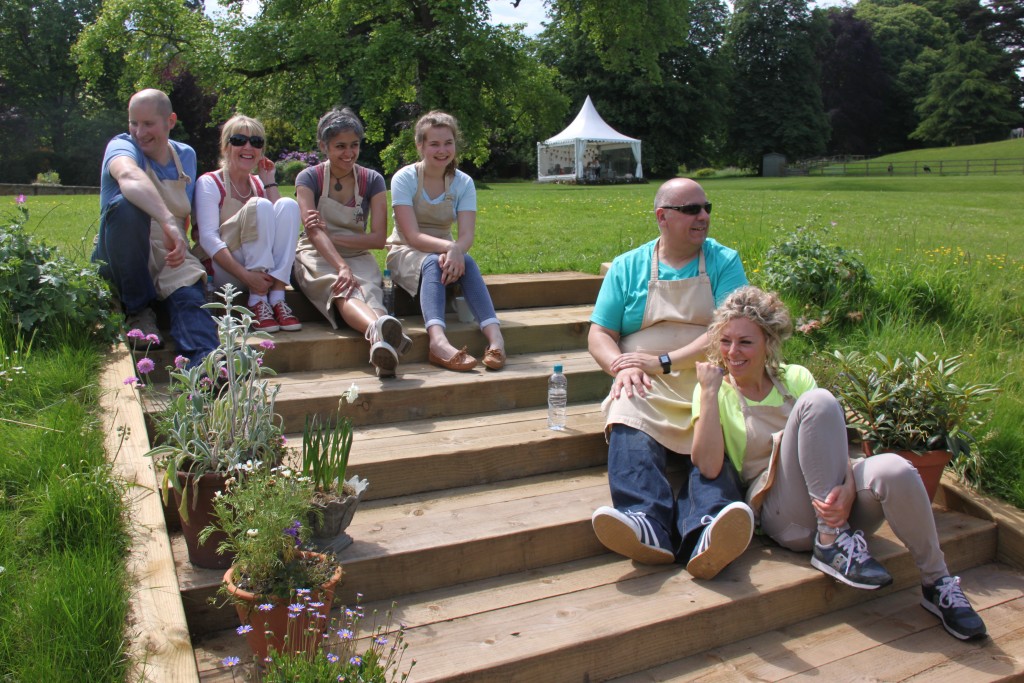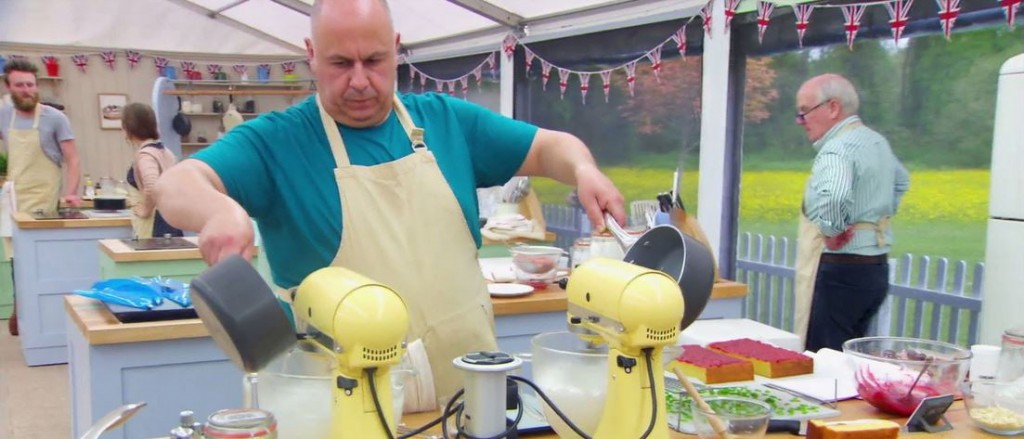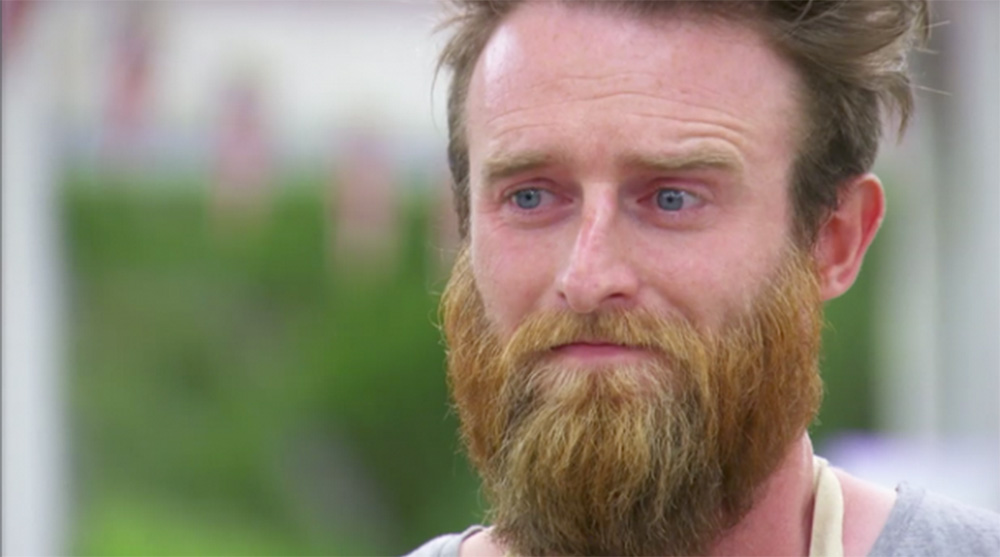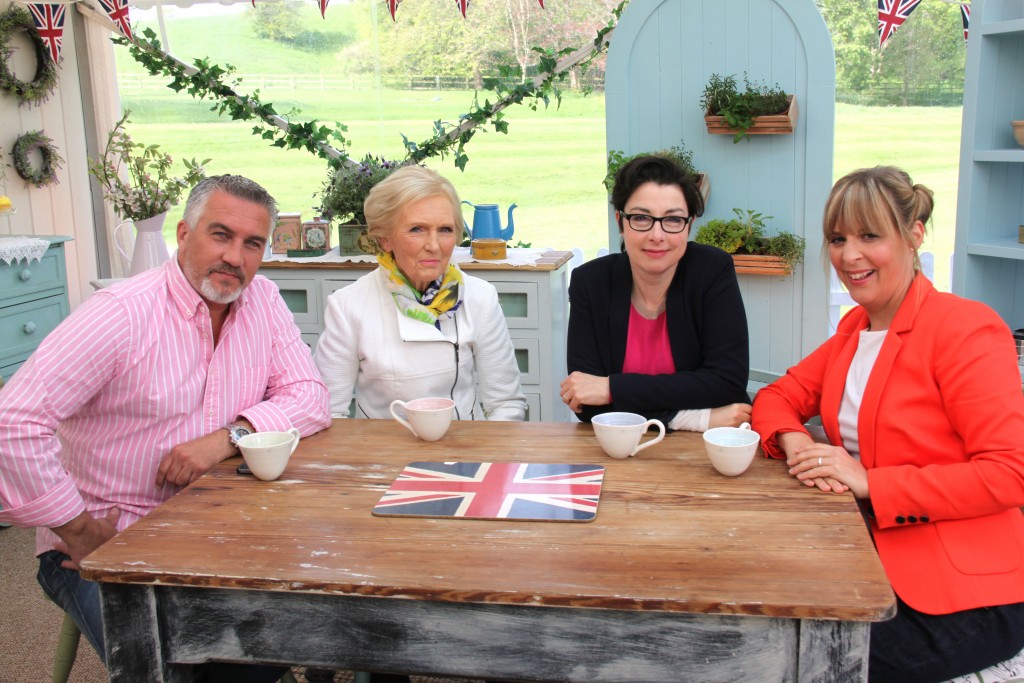
Twelve people in the middle of an English field, just... baking. As far as television concepts go, it’s a low-key one; so why is The Great British Baking Show (known as The Great British Bake Off across the water) so hugely successful? It certainly has none of the flashy visuals, hyped-up feuds or dramatic drum-rolls of its U.S. cooking contests counterparts. And it’s because of this — not despite it — that it’s totally, utterly addictive.
For the uninitiated, this 10-week show sees 12 amateur bakers demonstrate their skills in a series of weekly challenges designed to test their nerve and talents, from cakes and pastries to (whisper it) "advanced bread." Eclairs, ‘saucy puddings,’ ciabatta loaves, florentine biscuits: each week, their efforts are evaluated (ie. eaten) by UK TV baking legends Mary Berry and Paul Hollywood, who decide who stays in “The Tent” and who goes.
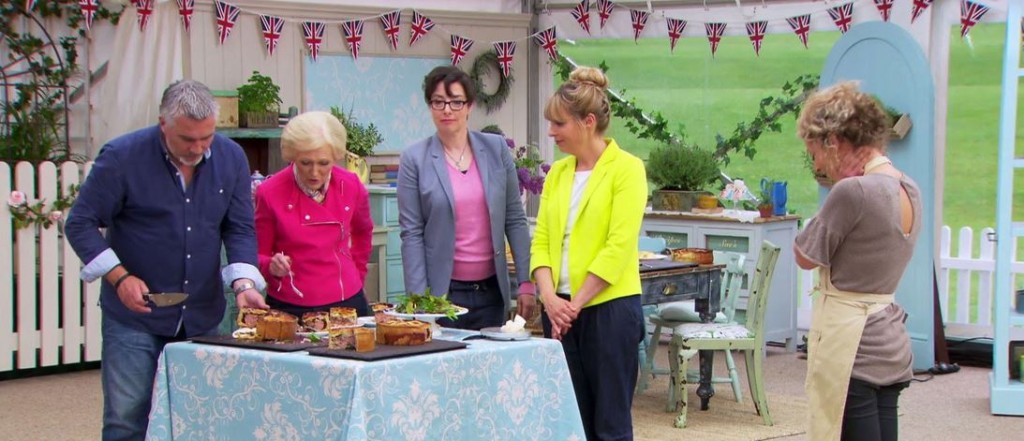
So far, so Top Chef — so to fully understand GBBS' appeal, let’s back up a little and return to the land of its birth. In Britain, this show is nothing less than cult-like in the devotion it inspires in every man, woman and child with access to a television, known in hushed, reverent tones simply as "Bake Off." (Or #GBBO, if you're one of the thousands who live-tweet every episode or re-live it on Tumblr, with the kind of GIF-heavy enthusiasm normally reserved for Game of Thrones.)
The reason then, for this now-global affection for a show that’s basically about cakes? The word that best sums up GBBS is “comfort”: comfort baking, comfortingly kind judging, non-confrontational contestants and wry, cozy humor. Let's be honest: it’s also a kind of parody of Britishness. Set in the rolling grounds of a historic country mansion where little lambs can (seriously) be seen frolicking nearby, the set is stuffed with pastel-hued KitchenAids and Union Jack bunting flags. (Perhaps this is why CBS’ much-derided remake The American Baking Competition was canceled after just one season: just not enough bunting?)
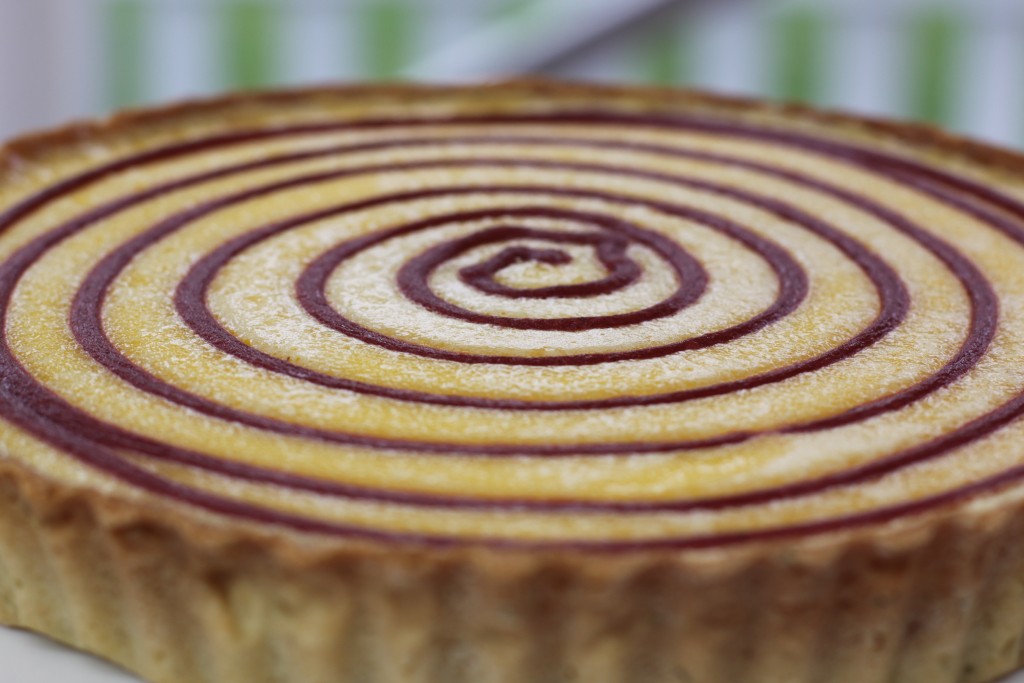
More importantly: with all of the posturing, verging-on-sociopathic bluster and cymbal-crashes of your average Food Network Hunger Games stripped away, it’s the kind of foodie tournament you can actually imagine yourself starring in. At its heart are a group of reassuringly normal humans who just really love to bake: from London builder Richard who bakes for his daughters and softly-spoken Indian-born fashion designer Chetna to super-geeky sweets-splicer Jordan and perfectionist Luis, who never resists an opportunity to incorporate his Spanish heritage into his masterful creations.
